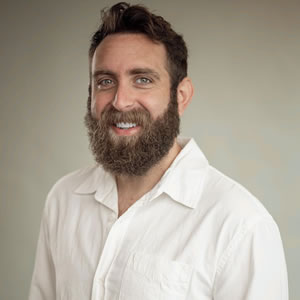Evyatar Ben Artzi Podcast Transcript
Evyatar Ben Artzi joins host Brian Thomas on The Digital Executive Podcast.
Welcome to Coruzant Technologies, home of The Digital Executive podcast.
Brian Thomas: Welcome to the Digital Executive. Today’s guest is Evya Ben Artzi. Evya. Ben Artzi is the co-founder and CEO of Darrow, a legal technology company on a mission to transform the legal system through data-driven legal intelligence. Founded in 2020, Darrow uses a combination of artificial intelligence, data science, and legal expertise to uncover hidden legal violations that would otherwise go unnoticed.
Under Evie’s leadership, Darrow has grown to a team of 150 employees across offices in Tel Aviv, New York, Miami, and Arizona, and is trusted by top legal firms across the United States.
Well, good afternoon, Evya. Welcome to the show.
Evyatar Ben Artzi: Thank you for having me.
Brian Thomas: Absolutely, my friend. I appreciate you making the time. I’m up real early here in Kansas City and you’re in Israel at the moment, so I appreciate you making the time. I know that’s, uh, a long ways to have a conversation, but I always appreciate the guests trying to work and navigate around time zones.
Evya, I’m gonna jump into your first question. Your vision for Darrow is rooted in the idea that justice should be proactive and accessible. What specific moment or experience sparked this mission to surface legal violations using data and ai?
Evyatar Ben Artzi: I was a Supreme Court clerk with my friend a lot, and we both had the same experience of looking at the cases that the court was dealing with and thinking.
It was so weird that when we went on breaks and just looked at her phones, we saw so many bad things happen in the world that weren’t coming to court. That felt like a really big disconnect, like a gap. When we started researching it, we learned this was part of the justice gap. There was an intelligence gathering problem for attorneys that couldn’t find the.
Immense amount of legal risk out there and bring it to the right resolution. So that was kind of what sparked it. It was just, I guess, in the boredom of clerking, you know, when you’re doing the same thing over and over again, you ask yourself, well wait on these breaks. I’m, I’m seeing so many interesting things.
Those are the biggest discussions we have. Why isn’t that coming to my door on my desk in the morning? And that’s what brought us to Darrow.
Brian Thomas: That’s amazing. I love the backstory on these. You and your friend, you know, on your phones, reading the news, reading what’s out there, and you know, working as Supreme Court clerks, you could see that there’s definitely a disconnect.
You’re seeing why isn’t this stuff brought in through the court system? Why isn’t this stuff rectified? And I really do appreciate that. Have yet, Darrow combines legal expertise with artificial intelligence to uncover hidden legal violations. Can you walk us through how your technology identifies these hidden harms and the role attorneys play in acting on them?
Evyatar Ben Artzi: Yeah. So you could think about Darrow as this radar system, right? Um, ex-military. And, and I think part of our, our thinking about this is like if you would have a radar for bad things happening for the wrongdoing, you could have people dispatch into the right centers and, and make sure that things are solved in a better way.
What our radar does is scans billions of data points to surface where legal harm is happening and no one is looking. And this could happen in any type of case. So I’ll give you an example. You have your 401k, and sometimes that plan could underperform. It represents a large number of people of beneficiaries with a plan that have the retirement money saved up there.
But if they’re not. Keeping their fiduciary duty, it might be actionable. And the only way to see that is if you look at the performance data for those plans, which no one really does. And also look at, uh, the law and what it says they have to do at the fees, at the performance of other equivalent plans, and try to figure out if there’s some wrongdoing happening here.
That’s a really data intensive process. And think about this in every other domain of the law, like privacy, consumer protection, antitrust laws, all of them need people to, to kinda look into places where that data is hidden. So it starts with finding the data and then monitoring it, consistently scanning it so that you surface the new anomalies.
And that’s what we bring on the radar system. When law firms have a chance to look at this, they can actually act on the harm. But sometimes it means filing a lawsuit. Sometimes it would mean finding a way to help the client, uh, a corporate, develop a strategy to prevent the harm or, or at least when the harm happens, compensate the victims and make sure that you do good by your clients.
And of course, this has other applications like, uh, insurance and trading and a bunch of other ways.
Brian Thomas: Thank you. I appreciate that your example was spot on. Of course. That’s a perfect one, being in the financial realm and, and how so many people get, they lose a lot of their investment money or they get scammed or whatever that is.
So I appreciate you working on that. I like the analogy of the platform, your platform, similar to having a radar, looking for that wrongdoing and scanning using technology, billions of data points to find those wrongdoings. I think that’s amazing. So appreciate your insights. Evia, many legal techs focus on efficiency within law firms.
Darrow, however, is focused on surfacing and wrongdoing. How do you arrive at this problem as your North Star, and how receptive have legal institutions been to this kind of proactive approach?
Evyatar Ben Artzi: I think most of tech solves problems that people already know exist, and our concept came from the fact that there are problems in the legal realm that people just don’t know yet.
So turning those signals into something that is actionable. You could really do something with is kind of like the core of what we do. Now, the, the problem of of exposing wrongdoing or exposing legal risk and mitigating the impact is our North Star, because that’s how we started the company. We started it with a goal of creating frictionless justice.
That concept is to say, at some point, humanity, I guess our society will find a way to do to legal what it did to online payments. Today you could go and pay anyone. Anywhere in the world very easily. There’s such a big system around it, but you, you’re kind of blind to it, right? As a consumer, what we want is to have this same kind of system just built for legal so the information flows.
Everyone can underwrite or at least, you know, assess the, the value of the legal risk and be able to exchange the value. And yeah, companies have been incredibly receptive to Darrow for, from the law firms that are looking at us as a reliable source of strong cases. And data about cases that could help them develop their businesses all the way to organizations that need to get ahead of the legal risk.
So everyone kind of benefits from this early detection and mitigation of the risk before it escalates and it becomes very expensive.
Brian Thomas: I really like that using the technology to be proactive. Obviously tech can solve a lot of things, but we need some humans in the loop and people to realize that we can actually come together to resolve or mitigate a lot of these things.
And I love what you said about your goal starting Darrow, creating that frictionless justice, which I think is amazing. So I appreciate that Ev, yet. Last question of the day. Looking ahead, what’s your long-term vision for Dara’s role in shaping a more just society? Could we one day see an AI driven legal intelligence become a standard layer of accountability in both corporate and public governance?
Evyatar Ben Artzi: I think eventually legal intelligence will be that layer. It will sit right next to the financial and business intelligence that every executive has on their dashboard. It’s just another feature of the system. It’s, it’s a visibility layer on the risk, on your exposure, and on the real world impact that it will have on the stakeholders of the organization.
So this definitely will be something that specialist organizations will have, like specialty insurance and litigation or law firms, but every corporate will be in a position where they have to have some form of intelligence on the legal risk and exposures they have. And I think that’s kind of the, the ultimate vision.
Once everyone has this information, they can de detect risks far faster than they do today. Then they can assess their value and at the end of the day address them. And that will create a, a more just society. ’cause in a world like that, you can trust the system’s always working for you in the backend somewhere someone’s doing the work.
So you don’t have to look behind your shoulder and think like, who’s doing something to me? Who’s screwing me over? No one is the system’s working to make sure that that doesn’t happen.
Brian Thomas: Thank you. I appreciate that and we certainly hope that the machine will be on our side. You know, I’ve had, uh, several conversations recently about having guardrails and ethics in place around these AI systems and we can go into that on, on another podcast, but really could go into that a lot.
That’s kind of my specialty, but I like the fact that legal intelligence will eventually be part of our everyday business lives, and I think that’s really important. It’ll be a must-have technology. Evya, it was certainly a pleasure having you on today and I look forward to speaking with you real soon.
Evyatar Ben Artzi: Thank you very much, Brian. The pleasure.
Brian Thomas: Bye for now.
Evyatar Ben Artzi Podcast Transcript. Listen to the audio on the guest’s Podcast Page.











